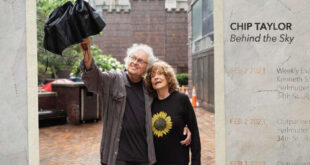Truth-telling: a noble, dangerous, lonely existential business in a world where people will kill to repress the truth, or in retaliation for those who refuse to be repressed.
Such is the brave, sad, infuriating story of Steven Vincent, 49, art critic-turned war correspondent, who was murdered in Basra, Iraq, on Tuesday, apparently in retaliation for an editorial he authored, published in the New York Times just two days before his death:
- An Iraqi police lieutenant, who for obvious reasons asked to remain anonymous, confirmed to me the widespread rumors that a few police officers are perpetrating many of the hundreds of assassinations – mostly of former Baath Party members – that take place in Basra each month. He told me that there is even a sort of “death car”: a white Toyota Mark II that glides through the city streets, carrying off-duty police officers in the pay of extremist religious groups to their next assignment.
Kathryn Jean Lopez writes in the National Review that Vincent — who wrote a series of pieces from Iraq for the NR and other publications that were collected in his book In The Red Zone: A Journey Into The Soul Of Iraq — and his Iraqi translator, Nour Weidi, were “snatched in front of a bank on Tuesday, August 2nd at 6:30 P.M. local time. Two men drove up, grabbed them, threw them in a car and took off. Nour dropped her ID on the street, which is how the British were able to figure out who it was.”
Vincent’s body was found on the side of a highway. He had been shot multiple times in the head. Weidi was seriously injured but survived.
Vincent’s NYT editorial was mirrored by thoughts published on his own blog:
- the fact that many, if not most, of Basra’s constabulary harbors primary loyalties to the city’s religious parties is–as you might imagine–a serious problem. To the despair of many secular-minded residents, the British are doing a cracker-jack job of teaching Iraqi police cadets close-order drills, proper arrest techniques and pistol marksmanship, without, however, including basic training in democratic principles and a sense of public duty. As a result, our Anglo allies may be handing the religious parties spiffy new myrmidons to augment their already well-armed militias. Worse, the knowledge that a cop’s sympathies may lie more with the Badr Organization than the Basran citizenry erodes general trust in the police. “If someone, say, stole my car, I wouldn’t go to the police to get it back,” an Iraqi journalist told me. “I’d negotiate directly with the thieves.”
Vincent was working on a second book, this one for Spence Publishing, that would examine the history of Basra, but editor-in-chief Mitchell Muncy told Publishers Weekly that Vincent was still in the research stages when he was killed. “I’m not optimistic we’ll have a book out of this,” he said.
Muncy also explained that Vincent, without a major media backer, did not travel with a bodyguard. “His background was as an art critic, so very few media organizations were going to pay for a bodyguard,” Muncy said.
It may not have made any difference given Vincent’s penchant for dangerous truth-telling. “Even with a few bodyguards it’s very possible he would have been killed as long as he stayed there,” Muncy said.
Steve Mumford, an American artist who shared an apartment with Vincent in Baghdad in 2003, told Reuters that Vincent had told him in an e-mail some weeks ago he had a lot of information he knew could get him killed if it was published. “He probably could have waited until he left. All I can think is he felt he had to get it out as soon as possible,” Mumford said.
Mumford also said Vincent had narrowly escaped death last year after being turned on by a crowd in the sacred Shi’ite city of Najaf following a car bombing.
New York Times reporter Edward Wong, said Vincent had told him he was prompted to go to Iraq by the Sept. 11, 2001, attacks and the Iraq war. “He said he fully supported the Iraq war, believing it was part of a much larger campaign being waged by the United States against Islamo-fascism,” Wong wrote. “But Mr. Vincent said he was also disappointed by the failure of the United States and Great Britain to enforce their visions of democracy here in Iraq, instead allowing religious politicians to seize power across the south.”
 Blogcritics The critical lens on today's culture & entertainment
Blogcritics The critical lens on today's culture & entertainment



